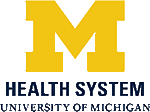U-M Hybridoma Core
The UM-Hybridoma Core research laboratory was established in 1980 under the leadership of the Michigan Diabetes Research and Training Center and has been in continuous operation since that date. The facility is presently supported by recharges for the cost of services and is managed by the Internal Medicine Division of Rheumatology. Hybridoma Core services are available to all University of Michigan investigators as well as to other institutions and the private sector.
The UM-Hybridoma Core generates somatic-cell hybrids (hybridomas) that produce monoclonal antibodies of desired specificity. The Hybridoma Core has developed monoclonal antibodies against a wide variety of lymphocyte surface antigens, tumor cell antigens, purified proteins, hormones, hormone receptors and recombinant proteins. Our goal is to continue to offer state-of-the-art monoclonal antibody technologies and services to biomedical research investigators.
Services
- immunization of mice, rats or hamsters
- fusion of B lymphocytes with myeloma cells to create hybridomas
- expansion and subcloning of hybridomas
- cryopreservation and storage of hybridomas
- monoclonal antibody isotyping
- culture and deposit of hybridomas obtained from other sources
- production of monoclonal antibody by high density culture techniques or in vivo as ascites.
Consultation/Collaboration
Consultation is available from the Hybridoma Core Director on the design of immunization strategies and screening assays to ensure efficient detection of the desired monoclonal antibodies.
The Core also provides collaborative and consultative services in conjunction with the MDRTC Cell & Molecular Biology Core on phage display libraries to assist investigators who may wish to select recombinant antibody-like reagents. Through these initiatives, the Hybridoma Core will remain on the cutting edge of monoclonal antibody technology, and continue to provide optimal service to investigators.


